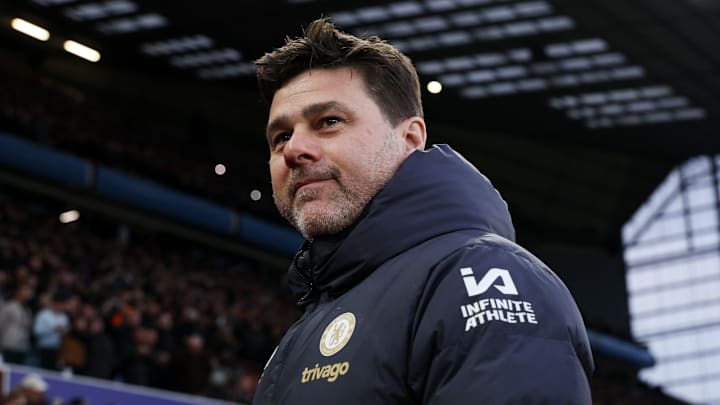In a turbulent Premier League campaign, Chelsea Football Club finds themselves grappling with defensive frailties previously unseen in their storied history. Having conceded a staggering 59 goals across 33 fixtures, the Blues are enduring their most porous defensive season to date. With five matches remaining on the calendar, this tally is poised to climb further—an alarming prospect for supporters witnessing a disconcerting lack of solidity at the back.
While Chelsea may boast a marginally improved standing in terms of points accumulation and league positioning compared to the previous season, it is the conspicuous deficiencies in their on-field performances that have fans anxiously pondering the team's trajectory. The absence of coherent play structures, a dearth of creativity in breaking down entrenched defensive setups, and a notable absence of composure when holding onto leads have all emerged as worrisome motifs haunting the Stamford Bridge faithful.
The spotlight naturally falls upon Mauricio Pochettino, who finds himself at the helm for his inaugural season with the club. Yet, the Argentine tactician's tenure has sparked a barrage of inquiries, with mounting calls for the board to reconsider his stewardship. In this juncture of introspection, it behooves us to dissect the underlying factors contributing to CFC's underwhelming results and to assess why Pochettino warrants further opportunity to shape the club's fortunes.
A recurring narrative plaguing Pochettino's tenure has been the incessant injury woes afflicting his squad. From the outset of his tenure, the Argentine has grappled with a litany of sidelined players, each succumbing to various ailments and infirmities. While injuries are an inescapable facet of professional football, the extent of Chelsea's casualty list cannot be overstated.
Key personnel such as Reece James, Ben Chilwell, Christopher Nkunku, and Wesley Fofana, among others, have all endured significant spells on the sidelines, disrupting the team's cohesion and denying Pochettino the luxury of fielding a settled lineup. The absence of pivotal figures like James and Chilwell has particularly hampered the team's defensive stability, amplifying the challenges confronting the Argentine manager.
In evaluating Pochettino's performance, it is imperative to contextualize his efforts within the framework of a fully fit squad—a luxury he has seldom enjoyed. The incessant shuffling of personnel impedes the establishment of cohesive patterns of play, leaving the manager grappling with perpetual uncertainty regarding his optimal starting eleven. The ongoing absence of Enzo Fernandez, who remains sidelined following surgery, further compounds the Blues predicament as they navigate the season's denouement.
🔵 Pochettino: “We cannot recover any players in the last weeks. We all feel the responsibility for injury situation”.
— Fabrizio Romano (@FabrizioRomano) May 1, 2024
“We need to improve and be better next season on that”. pic.twitter.com/KylgB6KbI0
Moreover, while raw talent abounds within the squad, it comes tinged with a measure of unpredictability. Poch's tactical acumen has come under scrutiny, with instances of defensive lapses and wastefulness in front of goal punctuating the team's campaign. Individual errors leading to goals conceded, coupled with a lack of efficiency in converting scoring opportunities, have underscored the team's shortcomings. The stark contrast between resounding victories, such as the 6-0 triumph over Everton, with humbling defeats like the 5-0 drubbing by Arsenal, epitomizes the mercurial nature of Chelsea's performances—a testament to the developmental journey that lies ahead for Pochettino's youthful charges.
However, beyond tactical acumen and squad composition, the fundamental essence of effort and intensity cannot be overlooked. In several high-profile defeats, a palpable lack of endeavor from the players has cast a shadow over the team's endeavors. While Pochettino shoulders responsibility for tactical deployment and substitutions, the onus rests squarely on the players to exhibit unwavering commitment and pride in donning the Chelsea jersey—a standard that has regrettably been inconsistently upheld throughout the campaign.
In assessing Pochettino's tenure, it is evident that improvements are requisite on multiple fronts for CFC to reclaim their footing. While the Argentine manager is not devoid of shortcomings in his tactical approach and matchday decision-making, he does not stand as the sole architect of the team's travails. Rather, a confluence of factors, encompassing player performances, medical setbacks, and broader institutional dynamics, collectively contribute to Chelsea's current predicament. As the club charts a course forward, a concerted effort must be made to address these multifaceted challenges in pursuit of collective redemption.
🚨🔵 Pochettino: “It looks like [on the press] only I need to prove myself. It's always: the coach needs to prove himself”.
— Fabrizio Romano (@FabrizioRomano) April 26, 2024
“But we are all responsible. We all need to prove that we deserve to be here next season, not only me”. pic.twitter.com/Ppd2e2o2L9
